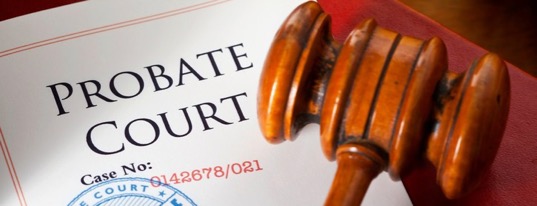The Probate Court Process
Probate is a court-supervised process for identifying and gathering the assets of a deceased person (decedent), paying the decedent’s debts, and distributing the decedent’s assets to his or her beneficiaries. The Florida Probate Code is found in Chapters 731 through 735 of the Florida Statutes, and the rules governing Florida probate proceedings are found in the Florida Probate Rules, Part I and Part II (Rules 5.010-5.530).
In Florida, generally a person is required to hire an attorney to assist them with filing a probate court case.
There are two types of probate administration under Florida law: formal administration and summary administration. There is also a non-court supervised administration proceeding called “Disposition of Personal Property Without Administration.” This type of administration only applies in limited circumstances. Probate administration only applies to probate assets. Probate assets are those assets that the decedent owned in his or her sole name at death, or that were owned by the decedent and one or more co-owners and lacked a provision for automatic succession of ownership at death.
Probate assets include, but are not limited to, the following:
- A bank account or investment account in the sole name of a decedent.
- A life insurance policy, annuity contract, or individual retirement account payable to the decedent’s estate.
- Real estate titled in the sole name of the decedent, or in the name of the decedent and another person as tenants in common, is a probate asset (unless it is homestead property).
Probate is necessary to pass ownership of the decedent’s probate assets to the decedent’s beneficiaries, if the decedent did not have a will. Probate is also necessary to complete the decedent’s financial affairs after his or her death. Administration of the decedent’s estate ensures that the decedent’s creditors are paid if certain procedures are correctly followed.
Probate proceedings are filed with the clerk of the circuit court, usually in the county in which the decedent lived at the time of his or her death. A filing fee is required and should be paid to the clerk. After you file for probate, the clerk then assigns a file number and maintains an ongoing record of all papers filed with the clerk for the administration of the decedent’s probate estate.
Do All Assets Have to Go Through Probate?
No. Some assets that don’t fall under probate include property that the deceased jointly owned with another person, assets that were directly designated to a beneficiary by the deceased (such as life insurance proceeds), and any assets held in a living trust. This is obviously a very simplified list, and to learn more, you should read about how to avoid probate, or ask us.
How Long Does Probate Take?
Unfortunately, probate is not known for its expedient nature. Even in relatively straightforward cases, the probate estate must be open for a three-month creditor claim period. Most beneficiaries can expect their loved one’s probate estate to be resolved within five or six months, but if complications arise, for example, if the estate has to file a federal estate tax return, the process can take longer.
Is There a Way to Shortcut Probate?
There are a few situations when Florida estates can actually shortcut probate. The process is called Summary Administration, and it applies to cases where the death occurred more than two years ago, or if the value of the probate estate is $75,000 or less. In each of these situations, the estate’s personal representative or a beneficiary must submit a Petition for Summary Administration, and the document must be signed by all beneficiaries. The Florida court will review the petition and, if it’s decided that the estate qualifies for summary administration, the judge will give the order to release the property of the deceased to the beneficiaries.
The estate can also avoid the probate process if:
- The property is exempt (e.g. a house owned with a surviving spouse).
- The only assets are personal property, and the value does not exceed $6,000 in funeral expenses or the medical expenses from the last 60 days of the decedent’s life. This is called disposition without administration.
- If the decedent dies with no assets in their individual name (i.e. all jointly held property or property held in a living trust).



Recent Comments